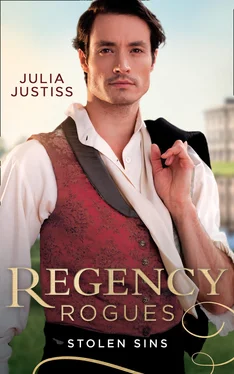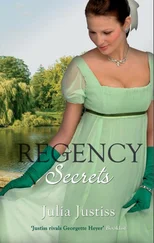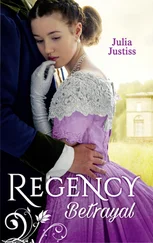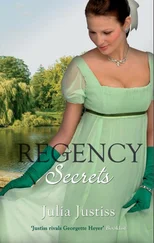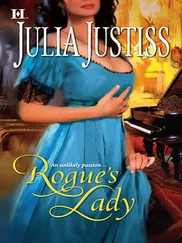And then he spied her, walking over with her father to greet him, beautifully dressed in a gown of deep green that set off her eyes. Though he lamented the demise of the fashion for very low-cut dinner gowns, Giles noted, running an appreciative gaze over her figure, that the new lower-waisted style emphasised her slender form and accentuated the swell of that far-too-well-concealed bosom. As he raised his eyes to her face, she extended her hand.
He bowed over it, feeling a tremor vibrate through her fingers as he raised them to his lips. He had to fight to keep himself from letting his lips linger over the soft kidskin, while his nostrils filled with scent of violets. Concentrate on politics, he warned the senses that urged him to cut her from the group and whisk her away somewhere they might be private.
‘Father, I’m sure you remember Viscount Lyndlington—or Mr Hadley, as he prefers to be addressed. I was so impressed by his speech to the Commons, I took the liberty of adding him to our gathering.’
‘I heard from several sources about the eloquence of that address,’ the marquess said. ‘Let’s see if you can be equally eloquent in persuading some of my colleagues to your views tonight.’
‘I hope in turn to become better acquainted with your objections to it,’ Giles replied. ‘Knowledge and openness to altering opinions will be the only way compromise can happen.’
‘I shall look forward to the exchange,’ the marquess replied. ‘I believe you know most of the gentlemen?’ He waved a hand towards the rest of the room.
Giles forced himself to take his eyes from Lady Margaret, who was shyly smiling at him, and gaze around him. He’d been expecting a gathering of Tory lords, but the group was in fact much more varied. Beside several of the marquess’s associates from the Lords stood his good friend Lord Bathhurst and the irascible Baron Coopley, one of the most rigid Tories. But also present were the railroad man and inventor George Stephenson, several Tory MPs, and one of the Committee of Four whom Lord Grey had charged with drafting the Reform Bill, Sir James Graham.
This grouping should indeed provide for some interesting discussion, he thought, hopeful that prospect would make it easier to concentrate on politics—and ignore the allure of Lady Margaret, to whom his gaze kept returning, like a child’s toy pulled by a string.
Another guest was announced, and host and hostess moved on to welcome him. Giles watched Lady Margaret’s graceful sway of a walk as long as he thought he could get away with it without the raptness of his attention becoming notable, then made his way to the group which included Sir James.
‘Hadley!’ the Whig leader said in surprise as Giles joined them. ‘I didn’t know you were acquainted with the marquess. I’ll look forward to having a friend in my corner during the debate tonight. Though you’ll hear the variety of views Lord Witlow enjoys, I fear we shall still be outnumbered.’
Avoiding any comment about his connection to the marquess, Giles said, ‘How does Lord Grey think the lines will be drawn, once the bill comes out of committee?’
As he expected, it required only that question to launch Sir James and the two MPs standing with him into a spirited debate about how the legislation would progress, a discussion Giles would normally have followed avidly. Tonight, he listened with half an ear, surreptitiously trying to keep Lady Margaret in sight.
She was a good hostess, greeting each newcomer, sometimes allowing her father to direct the conversation, sometimes, with gentlemen who were obviously old family friends, giving the newcomer a hug or a kiss on the cheek.
Giles never thought he’d be jealous of venerable gentlemen from the older generation. At least, he told the impatient little voice within that clamoured to be near her, she wasn’t gifting her kisses to any man who looked virile enough to be his rival as a lover.
Startled to realise his interest in Lady Margaret had somehow progressed from admiration to evaluating other men as competition, he followed Sir James’s group in as the butler called them to table.
To his disappointment, he wasn’t seated near his hostess—the elderly Marquess of Berkley and Lord Coopley had that honour, as was proper for the two highest-ranking guests. He was surprised that he’d been seated adjacent to his host, a place that would normally have been reserved for a gentleman of higher status. Unless, he realised with a rueful grimace, one took into account his position as a courtesy viscount.
At first, conversation was general, with comments on the food and wine and an exchange of pleasantries and social news among the gentleman. Having nothing of interest to contribute, Giles listened politely, his glance straying to Lady Margaret at the other end of the table.
She was smiling at Lord Coopley—and what a lovely smile it was, he thought, those generous lips upturned and her eyes brightening. He liked what she’d done with her hair tonight, thick coils of auburn fire pinned atop her head, with little tendrils curling down to kiss her brow and earlobes—as he would love to. That luscious mouth, too.
‘…do you not think so, Hadley?’
Startled by the sound of his name, he jerked his head back to find the marquess regarding him, a slight smile on his face. Realising he’d not only been rudely inattentive to the host who’d done him the honour of seating him beside him, he’d also been caught staring at the man’s daughter, he gave himself a sharp mental rebuke, feeling his face heat.
If he were a parent worth the name, Lady Margaret’s father must already be curious about the link between them. The last thing he needed was to give the marquess a distaste of him by exhibiting the sort of ill-bred behaviour his half-brother always accused him of—or worse still, have Witlow suspect the strength of his amorous interest in Lady Margaret.
That subject concerned the two of them alone.
‘I’m sorry, my lord, I didn’t quite hear. Could you repeat the question?’
‘Certainly.’ A little twitch to his lips, as if he didn’t believe Giles’s excuse for an instant, but didn’t mean to call him on it, Witlow complied. This time, Giles listened closely, telling himself sternly for the remainder of the dinner to concentrate on his host.
Once the diners ventured into political matters, the conversation became stimulating enough to hold Giles’s attention, despite the ever-beckoning temptation of Lady Margaret seated at the other end of the table. Giles deferred to Sir James, letting the senior Member shoulder the burden of defending the Reform cause, adding a comment only when called upon. Not that he was afraid of speaking out, but it would be presumptuous for a junior member to put himself forward when Grey’s aide was present, an experienced man better known to this group than he.

Some time later, he heard Lord Coopley call his name. ‘So, Hadley,’ the baronet said in his gravelly voice, ‘your half-brother tells me you carry a torch for the Friends of the People?’
‘In a way,’ Giles replied. ‘Since Lord Grey himself formed the group, all of us who call ourselves Reformers are happy to carry on his ideals. Who could disagree with the notion that talent and virtue should be the chief requirements for a Member of Parliament?’
Apparently able to disagree, Lord Coopley sniffed. ‘Every male eighteen and older to have a vote? Parliaments to be elected annually? One member of Parliament for each twenty thousand citizens? Bah! How could the nation’s business be done, with Parliament forming and breaking up every season, and any Tom, Dick and Harry who could stagger to the polls after drinking a quart of election gin able to cast a vote? In private, no less, so one would never know where he stood! I suppose you sympathise with the Spencean Philanthropists, too, who would confiscate all our land and parcel it out, a few acres to every man, woman and child in the land?’
Читать дальше
